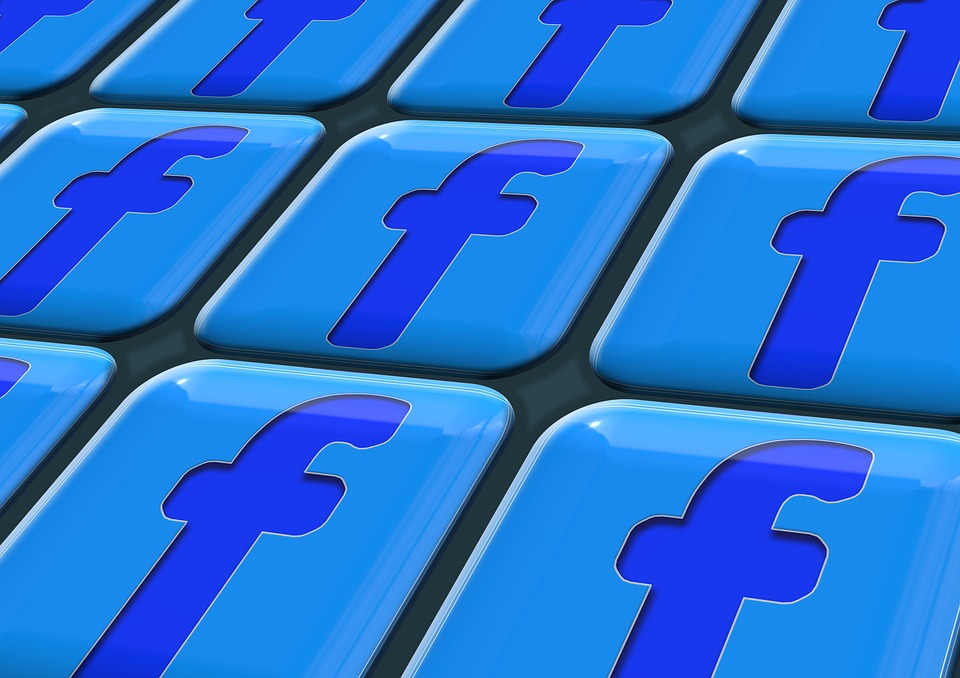
As we’re rolling out our twelfth annual Techsurvey (summary deck available here), our ability to track changing behaviors and the growth of various gadgets and platforms is astonishing. Being able to measure the impact of various brands and devices over time opens up a world of learning and understanding.
Consider for a moment that Facebook barely existed when we introduced our very first Techsurvey a dozen years ago (known at that time as Tech Poll). Today, well more than eight in ten respondents have a social media profile. We didn’t even ask the question back in 2005.
Of them, 94% are on Facebook. Imagine a local radio station with a 90%+ cume rating, and you can begin to fathom just how ubiquitous Facebook has become.
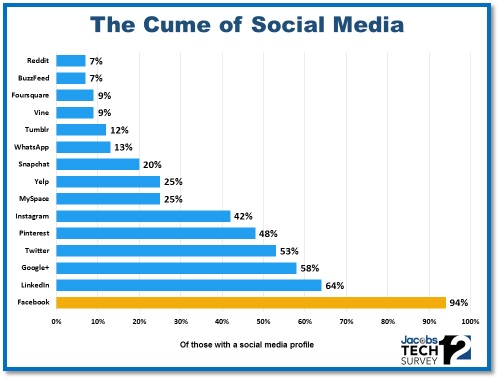
In fact, the chart above depicts the equivalent of social media “cume.” And as you can see, there are numerous social platforms that have cracked the 50% barrier. But none of them comes close to Facebook’s “reach.”
But the true measure of social media success is indeed engagement. Think of it in radio parlance as “Time Spent Listening.” Perhaps the equivalent here is “Time Spent Socializing.” And in this case, it’s no contest.
Nearly three-fourths of those on Facebook use the service on a daily basis or more often. That degree of “TSS” is five times higher than Twitter’s. So when you consider Facebook’s “cume” and daily engagement, you’ve got a social and cultural phenomenon unlike anything we’ve ever seen.
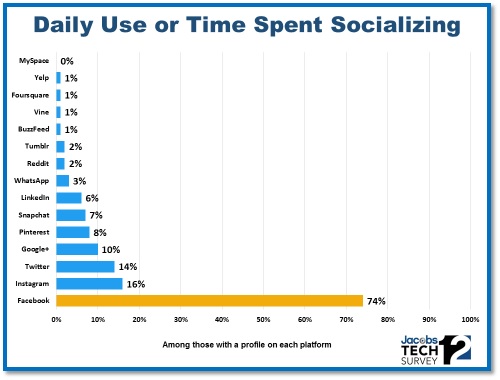
That reach and “regularity” is something that radio programmers would kill for. For many, Facebook’s hold on its members is more of an addictive vise grip than a fanciful past time. Whether consumers like Facebook or criticize it, they can’t get away from it. They are hooked because their entire lives – family, friends, school, and even work – are tied up with this massive social network.
But is Facebook really a “social network” at this point? Or has it evolved into something else?
Remember the movie starring Jessie Eisenberg as Mark Zuckerberg was called The Social Network with the marketing tag line: “You don’t get to 500 million friends without making a few enemies.” Today, you can make the case that Facebook is a full-fledged media brand. And by the way, Facebook is up to 1.59 billion active monthly users.
Beyond usage, something else is happening with social media, but especially Facebook. In the research we conduct for both commercial and public radio clients, we continue to see how Facebook has become a source for news and information. People trust news stories they get from their friends. Oftentimes, it is Facebook that serves as the referral source of news and information.
That finding has been quantified by The Media Insight Project in a survey called “A New Understanding: What Makes People Trust and Rely on News,” conducted in February/March of this year. Overall, 2,000+ respondents took part in a blended format that included the web and telephone interviews.
Of those who get their news from social media sites, Facebook has four times the reach of YouTube, and nearly five times that of Twitter. No other social platform comes close.
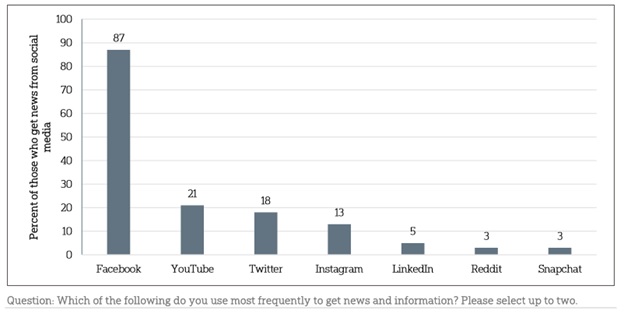
And that’s why Facebook employees – all the way up to Mark Zuckerberg – don’t think about their brand as just a place to just share memes or celebrate friends’ birthdays. To them, social media is a news and information game-changer, as influential on the culture as any news source. In fact, maybe it’s bigger.
Case in point, Gizmodo recently published a story about how a number of Facebook employees implored Zuckerberg to use his/Facebook’s influence to roadblock Donald Trump.
How could that happen, you might ask? Facebook internally polls its employees about questions they’d like to ask Zuckerberg in a company Q&A with its founder. According to Gizmodo, a number voted for this question:
“What responsibility does Facebook have to help prevent President Trump in 2017?”
Now truth be told, there were more than three times the votes for “Are you/we doing enough in tooling and training to prevent fireable offenses?”
But the fact that some Facebook employees are even thinking along the lines that Facebook can impact an election, and derail a popular candidate, speaks to just how powerful it has become.
Gizmodo quotes UCLA law professor Eugene Volokh:
“Facebook can promote or block any material that it wants.”
Facebook has the reach and the ability to tweak its algorithm to help or hurt any political party or candidate. And of course, they’re all on Facebook, too.
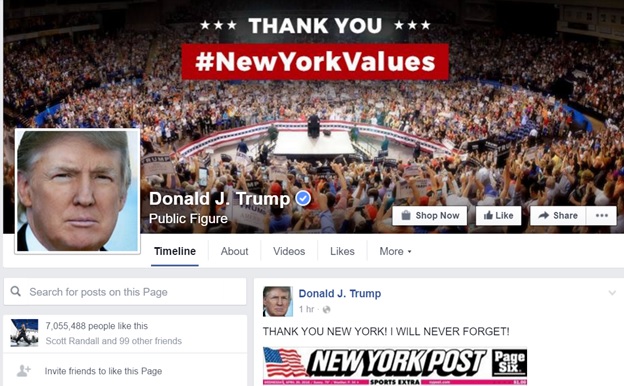
And while Facebook claims it doesn’t make attempts to influence the vote, here are Zuckerberg’s comments at his recent F8 Conference. Decide for yourself.
This is all the more reason why radio needs to get smarter and more strategic about the way it uses social media. We talk to some stations who still don’t engage much on Facebook, making the argument their audience is more at home on Instagram or Twitter.
While every station’s “social footprint” is different, not connecting on Facebook isn’t just a lost opportunity. It is tantamount to missing out on conversations your audience is having – whether you’re in the room or not. It may have become more difficult than ever to be seen on Facebook without paying a tariff for the privilege. But to avoid Facebook or just mail it in is a missed opportunity.
The all-powerful Facebook is no longer just a social network. While we were busy clicking “like” and posting cute old photos on Throwback Thursday, Facebook has become a media monster.
Feed the monster.
- What To Do If Your Radio Station Goes Through A Midlife Crisis - April 25, 2025
- A 2020 Lesson?It Could All Be Gone In A Flash - April 24, 2025
- How AI Can Give Radio Personalities More…PERSONALITY - April 23, 2025




Leave a Reply